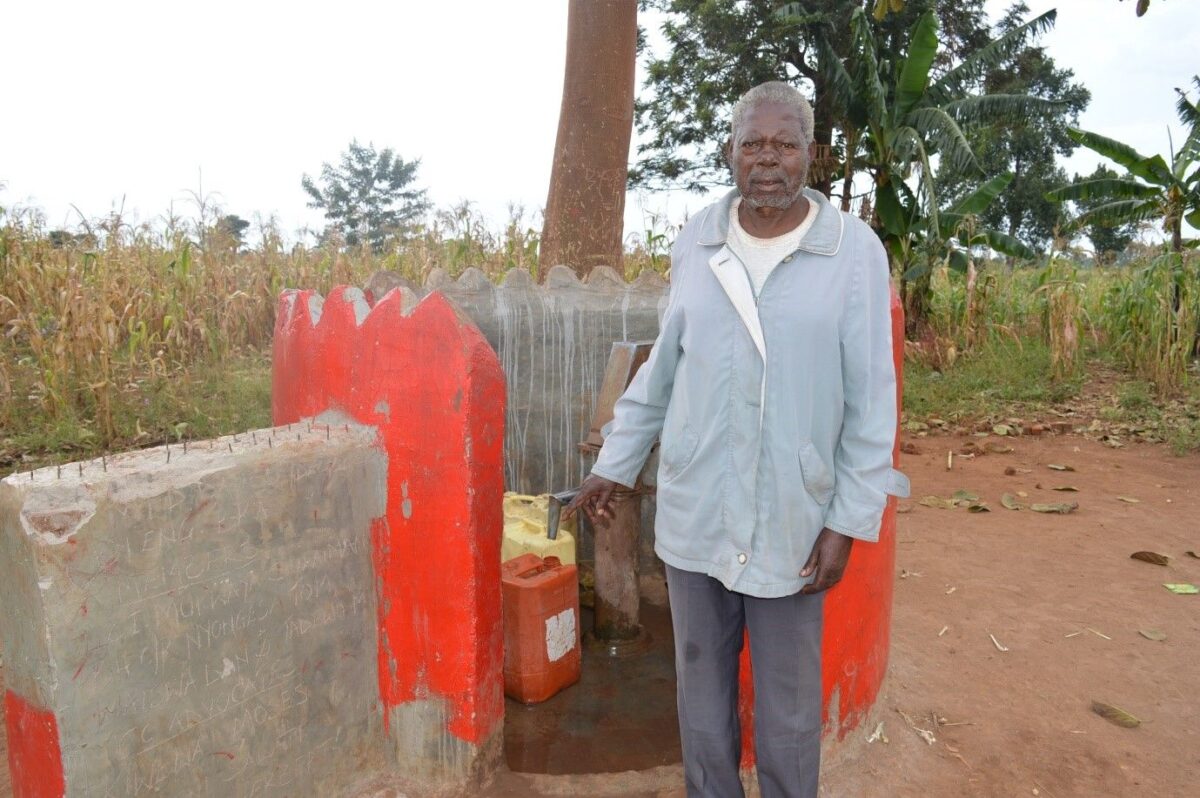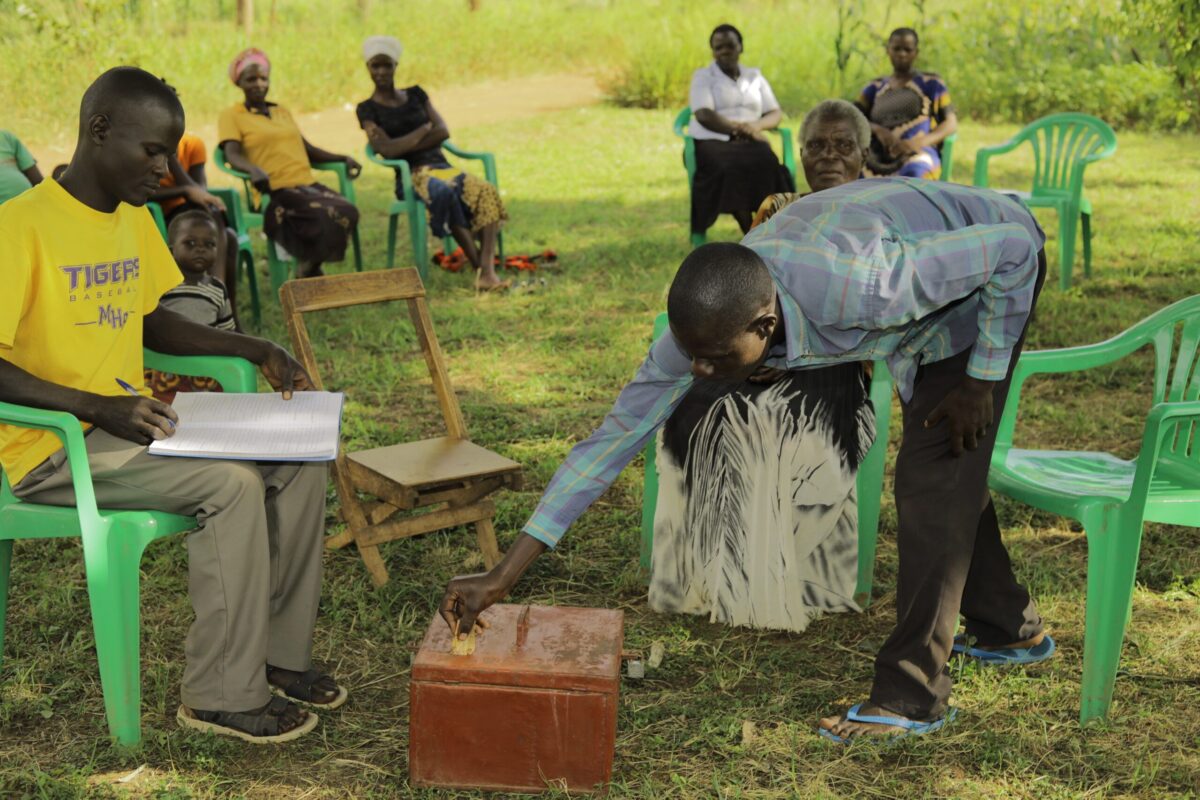 Stories
Stories
January 17, 2023 • 4 min read
Recurring water borne diseases like bilharzia and diarrhea among children have led one village in rural Uganda to embrace improved hygiene and sanitation practices, resulting in the declaration of open defecation free status.
Bukovu village in Bugiri District in eastern Uganda began its journey of change early in 2017 through GOAL’s Sustainable Water, Sanitation, and Hygiene (SWASH) programme. The village soon obtained Open Defecation Free (ODF) status as part of the Community-Led Total Sanitation (CLTS) approach.
Through this approach, Bukovu residents were shown the link between open defecation and chronic water-borne diseases that had affected the community for years. The residents were also shown the link between scabies and poor personal hygiene – as many residents did not bathe daily. CLTS did not only drive the message home but brought practical changes that were visible in the village.
Health Progress Lost
However, a few short years later, the burden of chronic disease had re-surfaced in Bukovu. According to a 2019 GOAL assessment on ODF status in communities of Bugiri and Namayingo districts, over 50 percent of villages had slipped back into practicing open defecation. The report noted that this was due to the use of poor-quality building materials and inadequate construction as well as poor designs resulting in bad smells, flies, and low user satisfaction.
A separate investigation into household water storage further revealed that there was widespread water contamination due to unmaintained pumps or use of unclean storage containers.
To counter this challenge, GOAL introduced the Community Conversation (CC) and People Centered Advocacy (PCA) pilot approaches on social behavioral change. These approaches test solutions for promoting sustainable water, sanitation and hygiene practices that would go beyond the community led total sanitation (CLTS). The intervention was intended to improve community ownership and influence notable sanitation and hygiene practices at various levels.
Musa Kabwangu, GOAL’s WASH Officer in the region, says the villages needed to talk through social cultural beliefs that were hindering progress that was earlier made.
“During the meetings, communities came together to discuss these concerns and agreed on a common ground to make things better and avoid the past mistake of allowing open defecation that was causing them more suffering,” says Musa.
Leading by example
In Bokuvu, Community Conversation Facilitators (CCF) worked together with the local leaders who led the process of constructing the latrines.
Local council leader, Fredrick Pamba, says the community is now embracing the construction of latrines with iron sheeted-roofs as a counter measure to grass thatched roofs that were easily eaten by termites. His home reveals a model household replete with all the components of a clean and safe environment, as a reflection of the transition of a place practicing open defecation to a clean habitable place for families to thrive.

Tom Nyongesa beside a concrete reinforced borehole in Bukovu village.
Residents using the People Centered Advocacy approach have been motivated to seek further community development initiatives, and have lobbied for other infrastructure, including new water sources.
“We recently wrote a letter requesting a water source in one of our areas. I’m glad to say that this has paid off as the spot to construct a borehole has been identified by the technical team,” says 86-year-old Tom Nyongesa, Chairman of the Water User Committee in Bukovu village.
Village Savings Benefit All
To further strengthen their progress, Bukovu residents, through their Mukoda Village Savings and Loan Association (VSLA), borrow money to address water, sanitation, and hygiene issues at household levels.
If a member wants to construct a latrine, as a group, there is a provision to support. The VSLA and community members see the importance of taking a whole-of-community approach. They are determined to support local families. People with disabilities receive extra support from the community.
Henry Kokas, Secretary of Mukoda VSLA, who also doubles as the CCF, encourages members to save money to tackle issues on water, sanitation, and hygiene. The group have also ventured into farming where they grow passion fruit as a supplement to the savings for their water, sanitation, and hygiene activities in the area.
“We use the savings to buy nails, poles and pay for repairs incase the borehole breaks down. This ensures that community’s water needs are catered for, and that the community is collectively responsible for their needs, instead of waiting for external help to come to our rescue,” says Koka.

Mukoda savings group members in a meeting where they save a portion of money to address community water and sanitation issues.
